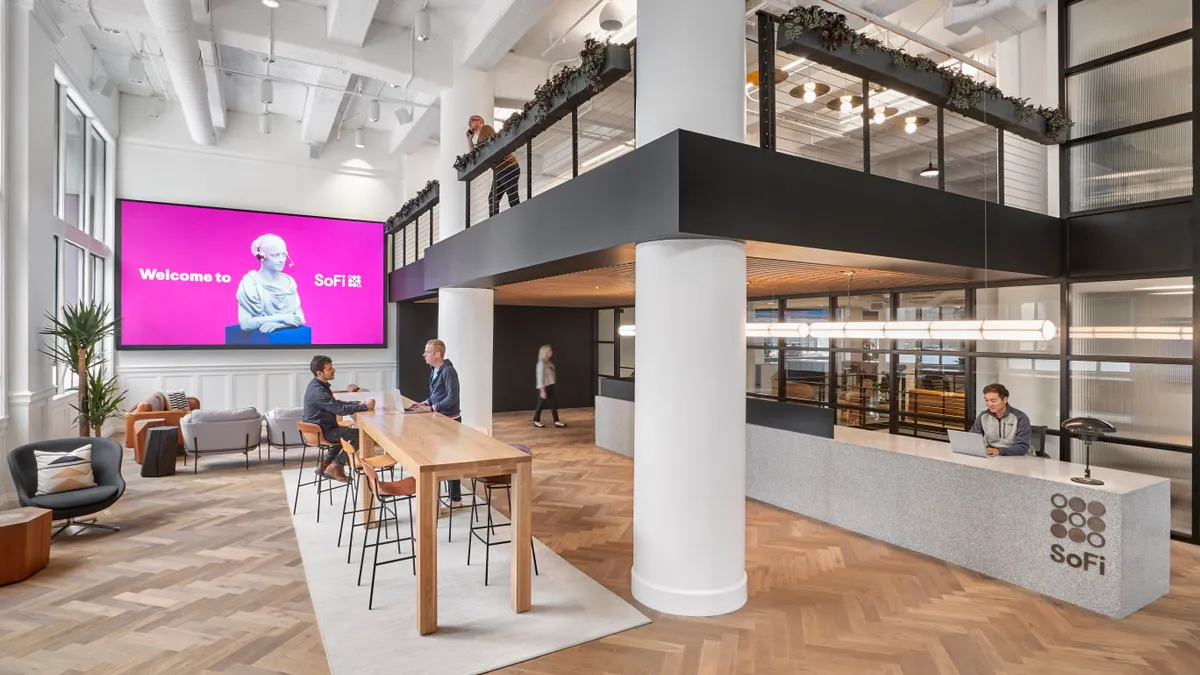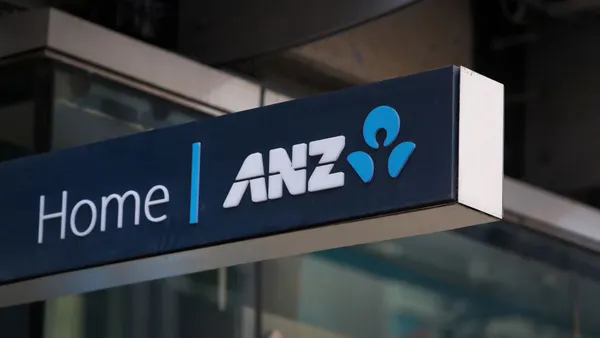Dive Brief:
-
SoFi received preliminary conditional approval for a national bank charter from the Office of the Comptroller of the Currency (OCC), the company announced Wednesday.
-
The company's application still needs regulatory approval from the Federal Reserve and the Federal Deposit Insurance Corp. (FDIC) before it can operate as a full-service national bank.
-
The news comes as the company launched its first credit card Wednesday.
Dive Insight:
SoFi, which submitted its 30-page application with the OCC in July, said a national charter will put it on a "level playing field" with traditional banks and lead to enhanced competition for consumers. A national charter would also let the fintech to operate under a unified set of regulations instead of the "patchwork of varying requirements" it follows to comply with regulations across 50 states, the company said.
"This preliminary conditional approval from the OCC is a testament to the mission-driven company we have built, the employees who help it grow, and the over 1.5 million members we currently serve," SoFi CEO Anthony Noto said in a statement. "By pursuing a national bank charter, we hope to be able to give consumers more choices and enhanced value when it comes to a full suite of financial services, which can help even more people achieve financial independence."
SoFi is leaning on that financial independence narrative in its credit-card rollout — offering its richest cash-back rewards not for travel perks but for paying down debt. The card will offer up to 2% cash back when rewards are redeemed to pay down student loans or personal loans financed through the company, or when redeemed into the company's deposit account or investment product. Users who choose another redemption option get 1% back. Cardholders can use SoFi's app to automate their redemption choice rather than having to proactively redeem their rewards each month.
Card applications are open initially to existing SoFi customers, but the company expects to expand the product to the general public early next year. The annual percentage rate on the card varies from 12.99% to 24.99%, but customers who make 12 consecutive on-time payments will get a 1% APR reduction if their payments remain timely.
SoFi got its start in 2011 with student-loan refinancing and has since expanded into loans, wealth management and stock and cryptocurrency trading. SoFi also has its own cash management account.
The company’s pursuit of a banking charter began in 2017, when it tried to become a de novo via the industrial loan company (ILC) route under co-founder and former CEO Mike Cagney. SoFi withdrew its ILC applications with the FDIC and the Utah Department of Financial Institutions after Cagney resigned amid sexual harassment allegations made by two former SoFi employees, according to CNBC.
SoFi further laid the groundwork for its banking journey when it purchased Galileo Financial Technologies, an application programming interface (API)-based payments platform that powers many challenger banks, in a $1.2 billion cash-and-stock deal in April.
Bryce VanDiver, a partner at consultancy firm Capco, said the acquisition provides infrastructure services that enable basic banking functionality, such as account opening, funding, transfers and bill pay.
Other fintechs, too, have found value in obtaining national banking licenses. Square, a payments company owned by Twitter CEO Jack Dorsey, obtained an ILC charter in March. Varo became the first challenger bank to obtain a national charter in July.
U.K. challenger bank Monzo is also seeking a U.S. bank charter. The digital bank submitted a de novo application with the OCC in April.













